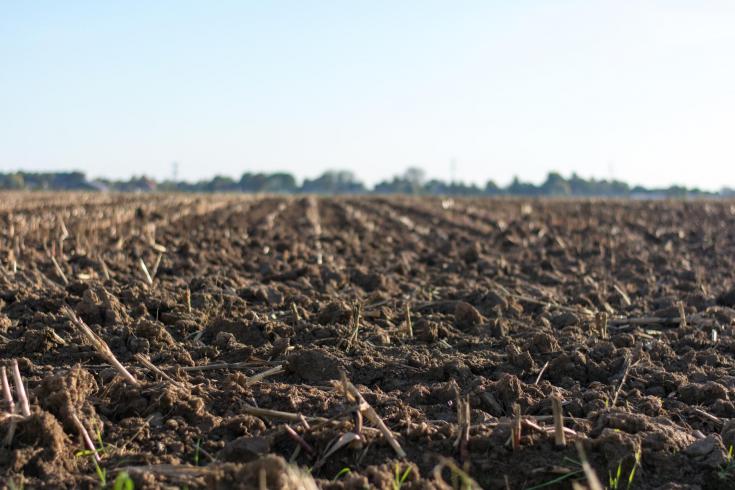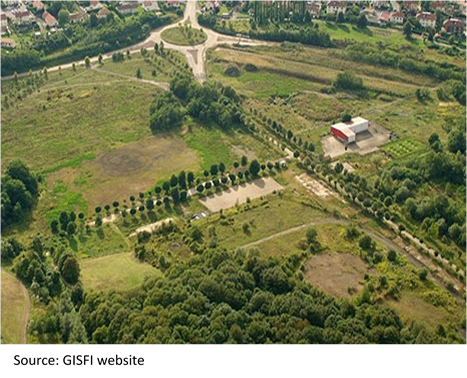GISFI Experimental Platform on Industrial Brownfield Redevelopment

While industrialisation has been instrumental in creating wealth in Europe over the past 200 years, it has caused pollution problems across the continent, including soil degradation. The issue has been recognised both at the EU and the UN level. The EU adopted a Soil Thematic Strategy in 2006.
However, the proposal for an EU Soil Framework Directive was withdrawn in 2014 as farmers and industry in five EU Member States were against additional legislative controls over soil protection. Nonetheless, the 7th Environmental Action Programme (the guiding EU environmental policy until 2020) also acknowledges the importance of the soil pollution problem and calls that ‘soil is adequately protected and the remediation of contaminated sites is well underway’.
However, admittedly EU Member States differ significantly with regards to their knowledge on methodologies to manage contaminated land. Additionally, the 2012 European Commission report on the implementation of the Soil Thematic Strategy brought the attention to the continuous degradation of soils in Europe, thus underlining the need for further action.
The establishment of the Experimental Platform on Industrial Brownfield Redevelopment (GISFI)
As an example for inspiration, the Université de Lorraine and four French national research institutes - CNRS, INRA, BRGM and INERIS - established GISFI (Groupement d'Intérêt Scientifique sur les Friches Industrielles - Scientific Interest Group for Industrial Brownfield). Since 2000, the interest group combines ten laboratories representing a wide range of research disciplines.
The main objective of GISFI is to ‘better understand the soil pollution and the evolution of man-made ecosystems, and to develop strategies and technologies for the revitalisation of degraded areas’. The territory of the historical and former administrative region of Lorraine (currently part of the Grand Est Region in France) was an ideal location for the establishment of the GISFI platform because of the region’s numerous industrial brownfield sites, a legacy of the industrial past.

A wide partnership dedicated to redeveloping industrial brownfields
GISFI has been set up as a wide partnership between research institutions (and their laboratories), regional and local administrations as well as the industry representatives as main stakeholders. The partnership with industry has given birth to innovative treatment technologies in the context of a regional strategy to redevelop industrial brownfields.
The GISFI platform has also greatly contributed to structuring the region’s research and innovation in the management of degraded and polluted sites and soils, and has established a strong specialisation and competitive advantage in this scientific and technologic area. Overall, the multidisciplinarity developed at GISFI and the experimental platform are valuable assets to study complex environmental problems and to promote modern solutions for the sustainable management of territories.
In particular, GISFI is at the origin of new approaches that make it possible to restore the value of degraded and polluted soils (e.g. soil construction, phytoremediation) and to improve the ecosystem services, as has been demonstrated in the during the LORVER program (e.g. biomass product, biodiversity, mitigation of pollution).
Real-life solutions and concrete results
Beyond tests under laboratory conditions, treatment solutions are tested out in the field. Monitoring covers a wide spectrum of biological, chemical and physical parameters. GISFI implements a number of innovative projects aiming at concrete solutions on topics such as environmental consequences of soil pollution; restoration of contaminated soil; etc.
Details are available here. GISFI platform also offers different services for integrated study of soil pollution and its impact on the ecosystems; experimentation and business creation. They are targeted both at scientists and companies.
From teaching to experimenting – a knowledge hub for the promotion of eco-technologies and the removal of soil pollution
The GISFI platform increased knowledge about degraded and polluted sites by hosting around 90 doctorates and a large number of scientific researchers. It also supported more than 400 publications significantly advancing science in the area. Master programmes have been introduced with a special focus on contaminated soils, and the platform regularly hosts a series of summer schools.
Close learning ties have been established between the experimental station at Homécourt and a number of French universities further spreading the research results. The objective of the experimental station is to develop scientific knowledge on degraded soils and to promote eco-technologies for removal of pollution from soils. The GISFI platform is also affiliated with a network of experimental sites SAFIR for practicing the new technologies.
Incubator of innovative companies
Concrete results of GISFI’s analytical work include the creation of two companies (MicroHumus and Econick). MicroHumus is a consulting and engineering company dealing with cleaning up polluted soils using phytoremediation and soil construction.
Econick is a biotech company using plants to recover metals from contaminated soils and wastes. A structure similar to GISFI is under construction in Guangzhou (China) in the frame of the cooperation established with the University Sun Yat-sen, underlining the transferability potential of the GISFI model.
A suitable funding mix
GISFI has been funded by the French national budget, the Region (Lorraine, currently Grand Est), the county council (Meurthe et Moselle) and ERDF. The total investment for the construction of the platform was EUR 2 million (2017). The operational costs of the platform amount to EUR 200,000 per year.
The platform is also complemented by high quality scientific equipment hosted by the participating laboratories. The platform also gets additional funding through national (e.g. ANR, ADEME) and European programmes, such as Interreg Europe as well as from private funding with companies, site owners and depollution companies.
From theory to practice – GISFI serving local and regional policymakers
The good practice would be useful for regions and cities who would like to step up efforts in industrial brownfield redevelopment and who would like to boost their related knowledge and capacity. They can either use the knowledge which is already available or get inspired by the institutional model which brings different actors together to solve a pressing problem of public benefit.
The practice is also linked to the Regional Smart Specialisation Strategies (RIS3). The generated applied knowledge could be an precious asset for other regions who have a legacy of industrial brownfield sites. Regions can also potentially benefit from the establishment of a European network of similar platforms providing the basis for a large-scale observation system of contaminated territories.
Université de Lorraine participates in the Interreg Europe project TANIA that brings together partners from 5 European regions (Päijät-Häme (FIN), Crete (EL), Grand Est (FR), Baranya (HU), Tuscany (IT)). TANIA aims at improving the policy measures supporting innovations such as nanoremediation for contaminated soil and water. Nanoremediation is an emerging technology for the removal of toxic contaminant from the environment.
For more information:
- Université de Lorraine
- Jean Louis Morel ([email protected] TANIA)
- GISFI
